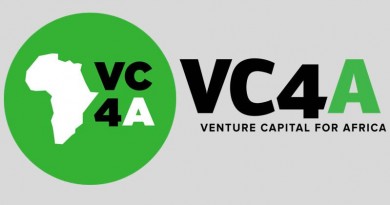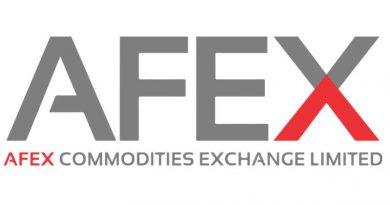Insane Fleece: Africa’s $89 billion annual loss to illicit financial flows
The 3rd Meeting of the Sub-committee on Tax and Illicit Financial Flows (IFFs) is scheduled to be held in Yaoundé, Cameroon, from 8 to 10 May 2024, with the theme “Enhancing Africa’s Leadership in Continental and Global Tax Reforms.” This theme underscores Africa’s capacity to boost revenue generation amidst changing international tax standards and discussions. It sets the stage for in-depth conversations, particularly on how stakeholders can assist the African Union and affiliated pan-African bodies in making taxation and the fight against IFFs central to African development through reforms at both continental and global levels.
The meeting’s objective is to facilitate dialogues and propose practical recommendations for Africa’s ongoing active involvement in global tax reform talks, especially within the United Nations (UN) Framework Convention on International Tax Cooperation. It aims to ensure that these reforms positively impact Africa by tackling the continent’s specific challenges in revenue mobilization, thereby backing its endeavors to realize the Vision and Aspirations of Agenda 2063 for inclusive growth and sustainable development. The meeting is being coordinated by the Department for Economic Development, Trade, Tourism, Industry, and Minerals (ETTIM) of the African Union Commission (AUC).
The STC Sub-Committee on Tax and IFFs operates under the Specialized Technical Committee (STC) on Finance, Monetary Affairs, Economic Planning, and Integration.
This Sub-committee is responsible for shedding light on issues related to tax and IFFs, offering practical solutions, and presenting recommendations for approval by the STC and implementation by stakeholders. Its primary focus remains on devising strategies to unlock domestic resources for Africa’s development and the well-being of its populace.
The Sub-committee is tasked with spotlighting and providing practical solutions to issues around tax and IFFs and making recommendations for the approval of STC and implementation by the stakeholders. Its focus remains to devise measures to unlock domestic resources for the development of Africa and its people.
THEMATIC FOCUS OF THE 3RD SUB-COMMITTEE ON TAX AND ILLICIT FINANCIAL FLOWS.
Africa is encountering difficulties in mobilizing internal resources to support development projects, despite its significant economic potential. Historically, the Continent, like other developing regions, has had limited involvement in shaping global financial and tax systems. This lack of participation has put Africa at a disadvantage, resulting in unequal access to funding, revenue losses, illicit financial activities, Base Erosion and Profit Shifting (BEPS), and hindrances to economic advancement.
Africa currently faces an annual loss of approximately USD 89 billion due to illicit financial flows (IFFs), which amounts to 3.7% of its GDP. Additionally, tax incentives contribute to an extra $220 billion in losses. The reported increase in IFFs from previous years highlights the urgency of addressing these challenges through efforts to enhance fiscal transparency, improve efficiency, and ensure accountability in tax management.
Despite these obstacles, Africa’s economic environment is rapidly changing. As the Continent expands and integrates into the global market, there is a critical need for proactive leadership in shaping tax policies both domestically and internationally. By taking a strategic approach to tax reforms, Africa can address its unique challenges on a global scale while strengthening internal tax systems, enhancing administrative capabilities, and closing legislative gaps effectively.
Only through such actions can Africa tackle crucial issues like BEPS, IFFs, and fair tax allocation, while establishing an equitable international tax framework. The African Union Commission, supported by organizations like the African Tax Administration Forum (ATAF) and Tax Justice Network-Africa, is spearheading these efforts to ensure a fair and just tax system for all.
African Leadership in Continental Tax Reforms
Africa, under the guidance of the AUC and other Pan-African Organizations, has been actively involved in various initiatives and has developed tools to support tax reforms that target illicit financial flows (IFFs) and base erosion and profit shifting (BEPS). These efforts aim to enhance the ability of member states to generate more resources for inclusive growth and sustainable development.
One notable example is the African Union’s sub-committee on tax and illicit financial flows (IFFs), which has formulated two strategies on Tax and IFFs. These strategies have been adopted by the Policy Organs of the Union and continue to serve as guiding principles for the AUC and its partners in advancing domestic resource mobilization and combating IFFs in Africa. The strategies focus on aligning tax policies with administrative practices, expanding the tax base to potentially lower tax rates, and harmonizing tax policies to reduce inter-country competition.
The organizations involved in these efforts have undertaken various activities, both individually and collaboratively. These activities include providing in-country support and capacity-building for members in areas such as tax audit, information exchange, research analysis, transfer pricing, digitization, and tax and gender. Additionally, they have worked on enlightening members about new global rules, such as the two-pillar approach, and have produced tools and products like the Suggested Approach to the drafting of Qualified Minimum Top-up Tax (QDMTT). Regional consultation workshops on international tax reforms, policy briefs on carbon taxation, research briefs on tax expenditure, and comprehensive insights on income tax policy for cryptocurrencies are among the other initiatives undertaken. Furthermore, ongoing work on a Policy tracker for IFFs is also being carried out.
Overall, African leadership in continental tax reforms is evident through the concerted efforts of various organizations and the implementation of strategies aimed at enhancing domestic resource mobilization and combating illicit financial flows.
The AUC, in partnership with ATAF, TJN-A, and other relevant organizations, is dedicated to enhancing African leadership in continental tax reforms. They aim to monitor and assess the effects of various policies and actions against IFFs in different nations, promote collaboration among agencies to combat IFFs within member states, and educate members on the implications and choices of recent global tax policies that have domestic consequences for the Continent through increased regional consultations.
African Leadership in Global Tax Reforms
The significance of Africa’s involvement in global standard-setting processes and the contribution of African policy positions to these bodies have been highlighted in various Ministerial meetings of the STC. This has led to the increased engagement of selected African countries and institutions in organizations such as the OECD-Inclusive Framework (IF) and the United Nations Committee of Experts on International Tax Cooperation (UNTC).
Since 2016, several African countries have become members of the OECD-Inclusive Framework, with a total of 27 African members in the organization. Additionally, four African countries actively participate in its Steering Group. The Inclusive Framework’s main objective is to develop rules to address Base Erosion and Profit Shifting (BEPS), resulting in the creation of BEPS 1.0, consisting of 15 Action plans, and BEPS 2.0, which includes two-pillar solutions. While Africa’s participation in both the IF and UNTC demonstrates exceptional leadership, the rules implemented so far only partially address African challenges such as BEPS and Illicit Financial Flows (IFFs), indicating the need for further action.
In light of the above, a new wave of global influence is emerging on the Continent. This wave is spearheaded by a group of African diplomats at the United Nations known as the “African Group.” Notably, the African Group aims to address the root causes of African tax issues, rather than simply accepting invitations from developed countries with pre-determined agendas that may not specifically target the Continent’s unique concerns.
This milestone was reached when resolution A/C.2/78/L.18/Rev.1, presented by the African Group at the United Nations General Assembly with the theme: “Advancement of inclusive and efficient international tax cooperation at the United Nations”, was approved by a majority on 22 November 2023 at the UN Headquarters in New York. This momentous occasion signified a historic achievement for Africa and the global community. The resolution garnered 125 votes in favor of a UN Framework Convention on International Tax Cooperation, with 48 votes in opposition, and 9 abstentions.
This groundbreaking initiative symbolized a significant progress, highlighting the African Group’s united commitment to worldwide tax reform and setting the stage for a more just and efficient global tax structure. The African Group, in collaboration with the AUC and allies, aims to establish a new international tax framework founded on principles of fairness, equality, and inclusivity at the UN.
- Enhancing African Leadership in Tax Reforms
It is essential for Africa to maximize its potential in tax reform by presenting a unified front and utilizing every available opportunity to address African tax challenges. Africa must have a presence in global tax policy discussions, including forums such as the G20, the OECD Inclusive Framework, and most importantly, the UN, to ensure its perspectives are taken into account. Additionally, African institutions like the AUC, ATAF, TJN-A, etc, need to receive adequate support to enhance their efforts.
Ongoing guidance and backing from the STC, its sub-committee, and relevant Policy Organs of the Union are crucial in this initiative. Countries should invest in training their tax officials and strengthening their institutions to effectively combat IFFs and enhance domestic resource mobilization. It is also important to endorse the current efforts to reform the international tax cooperation framework.
OBJECTIVES AND EXPECTED OUTCOMES OF THE MEETING.
The objectives of the three-day meeting are summarised as follows:
- Strengthening African Leadership in Tax Reforms: the gathering will shed light on the current status of African leadership in tax reforms, including the ongoing discussions at the UN, underscoring the ways in which members will back such leadership. Moreover, the STC Subcommittee will assess the progress of the OECD Pillar Two solution, which was initiated in January 2024.
- Improving Domestic Resource Mobilization: to deliberate and explore the establishment of a comprehensive tax agenda for Africa aimed at establishing a more efficient, fair, and standardized tax system. This agenda will concentrate on recognizing and tackling significant tax-related obstacles, such as base erosion, profit shifting, digital economy taxation, and cross-border tax compliance. The objective is to boost revenue mobilization, promote economic growth, and ensure equitable tax practices throughout the Continent while also taking into account the distinct economic circumstances of African nations. This endeavor will entail cooperation among African countries to devise and enforce tax policies that bolster sustainable development and regional integration.
- Reinforce Continental dedication in combating IFFs. This will involve outlining the measures and policy alternatives adopted by the AUC and collaborators to combat IFFs and enhance the ability of African nations to generate domestic resources while highlighting the actions members could take to ensure the desired results.
- Assess progress achieved in the implementation of the STC Recommendations: the session will provide an opportunity for committee members to receive updates on the execution of their recommendations and to provide input on the same.
- Addressing Emerging concerns: the meeting will empower members to pinpoint additional issues necessitating further attention from the pertinent participating agency or entity.
The expected outcomes for the third Sub-Committee on Tax and IFFs are:
- 1. Updated African position on the ongoing developments on the UN resolution on the United Nations Framework Convention on International Tax Cooperation.
- 2. Update on the status of the implementation of the new global tax rules.
- 3. Focus on Development of tools for African countries to reinforce their efforts in combatting IFFs.
- 4. Approved Update on the work of the Commission on combatting IFFs from Africa for presentation at the 7th STC.
Various stakeholders such as experts, senior officials from finance ministries, tax administrations, government-specialized agencies, central banks diplomats of the AU Member States, representatives from the regional economic communities (RECs), and African tax experts will be in attendance at the meeting. Observers and Contributors, which include International Organisations, Civil Society Organisations (CSOs), Non-Governmental Organizations (NGOs), Investigative Journalists, and Academia, will also be extended invitations to take part.



